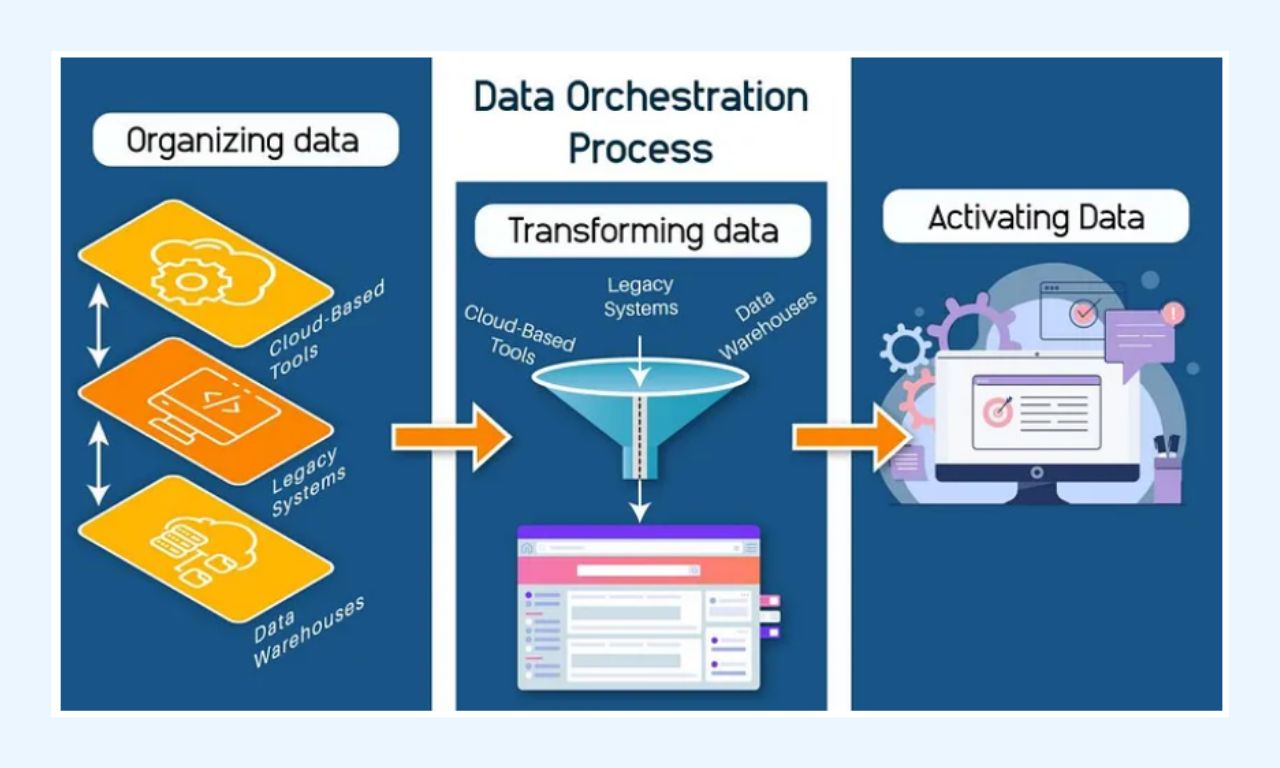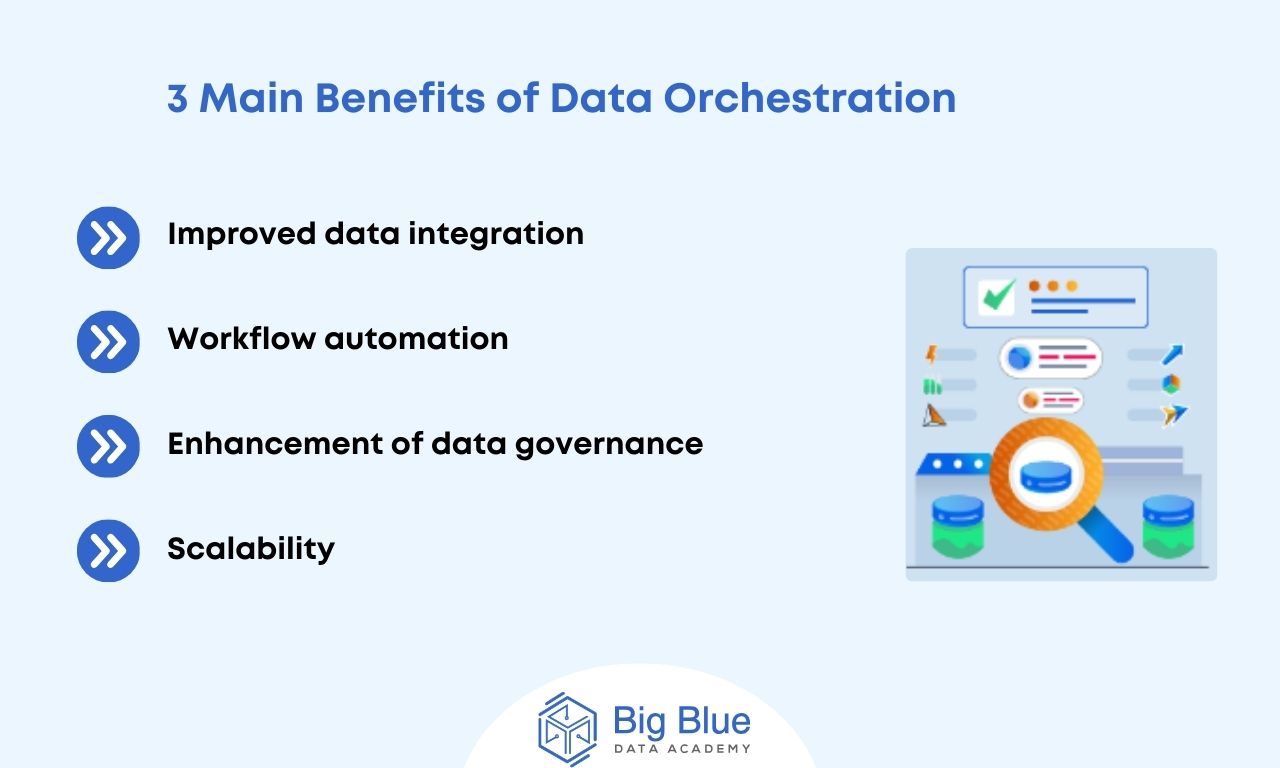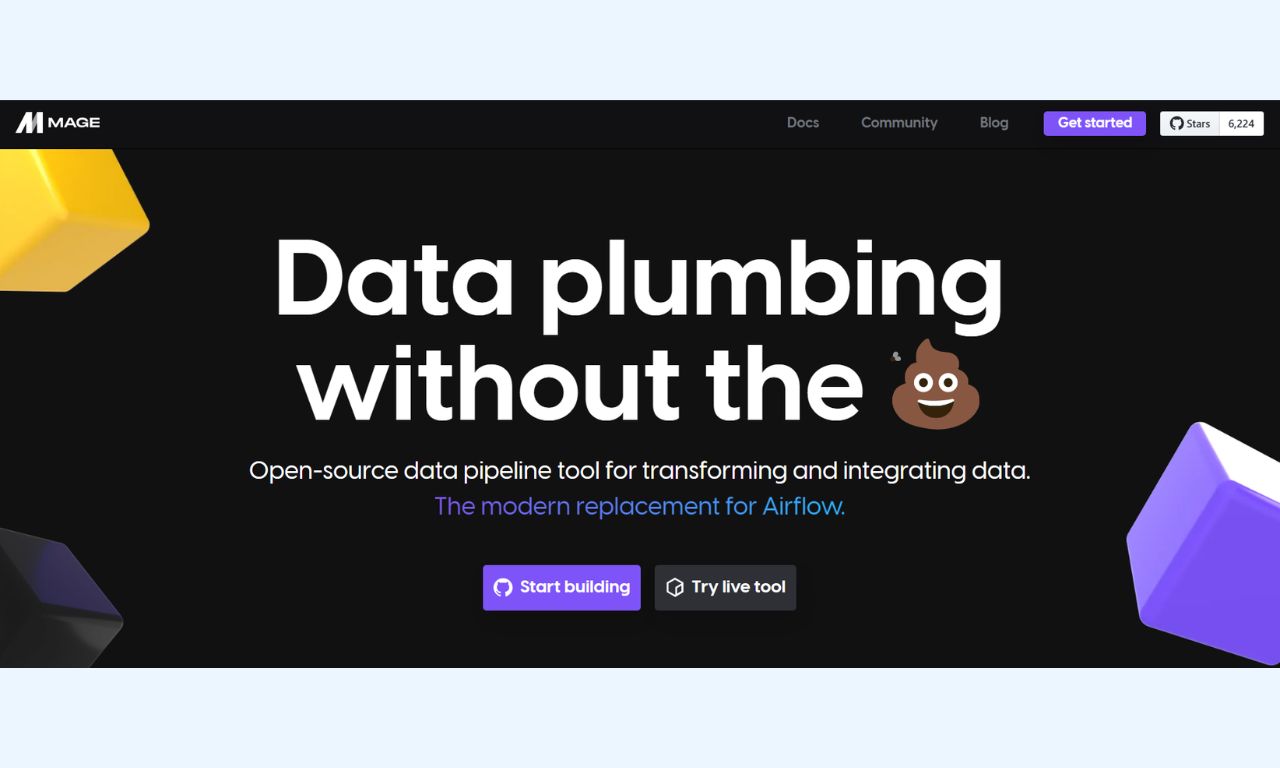Data Orchestration: Definition, Benefits & Tools
In an orchestration, there is the conductor who, through specific hand movements, attempts to indicate all the instruments that need to be timed and aligned to achieve a harmonious musical piece.
In the world of data, this role is taken on by data engineers who use a series of data orchestration processes to ensure that data is suitable for analysis and business decision-making.
In today's article, we will explore:
- What is data orchestration and how does it work?
- What benefits does it offer?
- What are the key data orchestration tools available?
Let's start with a basic definition.
What is Data Orchestration and How Does It Work?
Data orchestration is the process of moving data silos from various storage locations to a central storage space, where they can be more easily organized, transformed, and optimized for use in business analytics tools.

Data orchestration occurs in 3 distinct phases:
In the first stage, data engineers using data orchestration tools gather and organize the data pipelines.
Then comes the transformation stage, where the various fragmented data is transformed into a form that is consistent and accessible.
In a third stage, we have the activation phase, in which data orchestration tools provide actionable data for transformation and visualization.
Data orchestration plays an important role in today's data-driven businesses, where the volume of data, its complexity, and the diverse sources of data make it difficult.
Data orchestration offers a variety of benefits.
Let's see them in more detail below.
What Benefits Does Data Orchestration Offer?
The primary benefits of data orchestration include:

Benefit #1: Improved data integration
Data orchestration allows seamless integration of data from various sources, ensuring that data is unified and can be used cohesively throughout the entire company.
Additionally, it facilitates real-time data processing and analysis, enhancing immediate decision-making.
Benefit #2: Workflow automation
Data orchestration contributes to automating workflows within an enterprise, reducing the likelihood of errors.
Automation and optimization of data workflows, in turn, assist in lowering operational costs related to data management.
Benefit #3: Enhancement of data governance
Data orchestration enhances the data governance process.
Data governance becomes challenging when data is scattered across multiple systems.
Data orchestration addresses this issue directly, enabling businesses to have a complete picture of the data lifecycle, including data storage and access.
So they can take appropriate measures for data protection and data security.
Benefit #4: Scalability
Beyond ensuring data consistency and quality, data orchestration allows data teams to easily understand, prepare, and manage data pipelines at scale.
Now, let's delve into some key data orchestration tools that a data engineer should be familiar with.
3 Key Data Orchestration Tools
Tool #1: Apache Airflow
Apache Airflow is a powerful tool for data orchestration, one of the most popular open-source ETL orchestration tools operating in Python.

It started at Airbnb in 2014 as a solution to manage increasingly complex workflows.
Key features include scalability and Directed Acyclic Graphs (DAGs), enabling programming and automation of data.
Tool #2: Dagster
Dagster is a flexible cloud-native tool for data management and orchestration, particularly useful in every stage of the data development lifecycle.

It helps address challenges arising from diverse infrastructures within a company and integrates with Machine Learning frameworks.
Tool #3: Mage
Mage is another excellent tool for data orchestration, especially in terms of programming and managing data pipelines.

Mage operates in Python, SQL, and R.
Ramping Up
We've extensively discussed data orchestration, the benefits it offers, and some key tools used for greater automation.
Data orchestration is a fundamental part of a data engineer's work, and the various processes involved significantly contribute to addressing data silos, making data more accessible.
The field of data engineering presents many career opportunities and professional growth prospects.
So, if you are intrigued and want to learn more about the world of data engineering and data science in general, follow us for more educational articles!


.jpg)